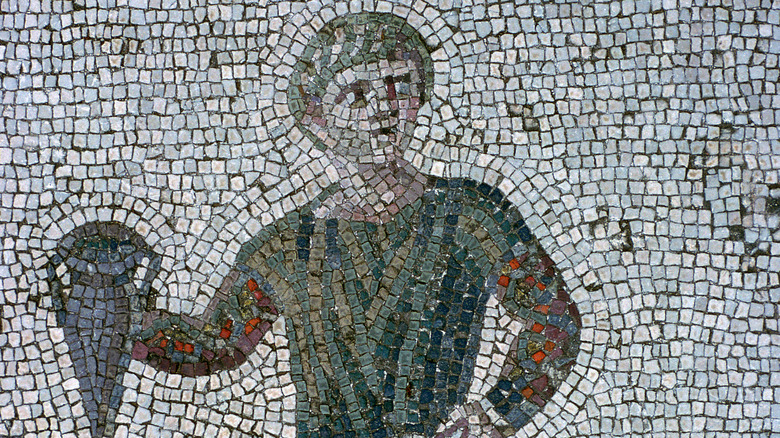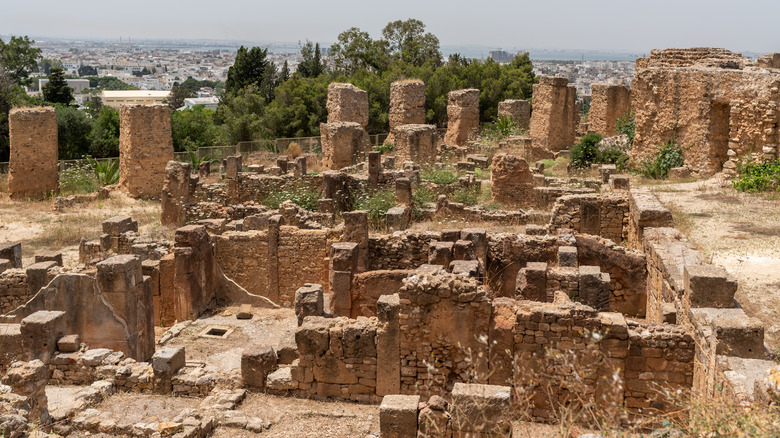Did The Ancient Carthaginians Sacrifice Their Own Children?
Carthage was an ancient city-state that was one of the most wealthy and powerful civilizations of the classical world. They successfully fought off the Romans and ran much of the trade connecting Africa, the Middle East, and the Mediterranean, becoming a society renowned for trade and culture. Yet, should they also be known for human sacrifice?
Debate rages between historians over the causes and purposes of the "Tophet," child burial grounds found within Carthage, and whether they are connected to the tales told by ancient Greeks and Romans that describe Carthaginians as sacrificing children to the gods (via Oxford University). A 2014 study concluded that archeological evidence was overwhelming enough to conclude that the tales had some truth to them, and that it was possible that children were sacrificed for blessings, as described by inscriptions found on slabs near the graves. While the act seems barbaric by our standards, at an age when most children rarely lived past their first year, connections to infants were likely not as profound, even among parents. The evidence is still not satisfactory to some scholars, however.
Not all were sacrificed
A more recent study from Cambridge refutes the certainty of Carthaginian child sacrifice, or at least, finds that it wasn't as rampant as the Romans made it out to be. While the bones were confirmed to belong to infants, many were also found to be pre-natal or stillborn. Pregnant women would have been subject to a variety of diseases, dehydration, and malnutrition that could have easily contributed to stillbirths and late-term miscarriages that would have filled the graves over time.
So did the Greeks and Romans fabricate tales to portray their enemy as savage barbarians, or were the Carthaginians really so pious that an entire graveyard of children was filled from their sacrifices? It might be impossible to gauge exactly, but the most likely answer is somewhere in the middle. While the Tophet has now been confirmed to be the final resting place for hundreds of Carthaginian infants and fetuses, most of those would have died from disease. However, with the inscriptions backing up the written history, we can also assume that at least some of those babies were sacrificed, and since a sickly child is not a proper offering to the gods, they would have likely been healthy before they were given up.

